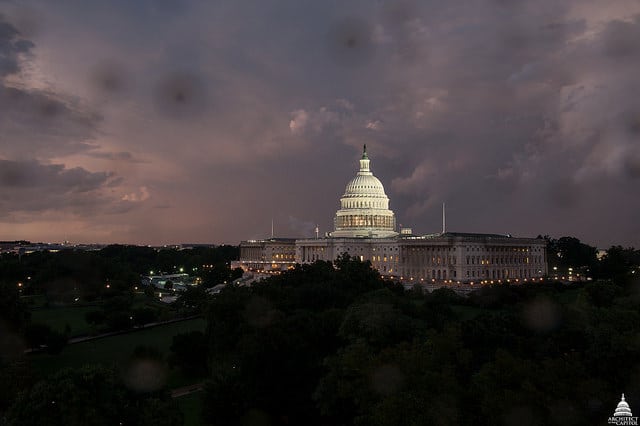
The House Appropriations subcommittee in charge of writing the first draft of the Department of Energy’s annual budget called off a Wednesday hearing with the agency’s top nuclear weapons and waste leaders minutes into the proceedings.
The hearing got no further than opening statements and a few questions from Rep. Marcy Kaptur (D-Ohio), the chair, and ranking member Rep. Mike Simpson (R-Idaho) before Kaptur pulled the plug, citing a long series of votes on the House floor.
“You’re more important than … the circus” on the floor, Kaptur said, moments after getting consent from Simpson and the other members to reschedule the hearing.
In the minutes after Kaptur’s game-day call, the House Appropriations energy and water development subcommittee had not rescheduled the hearing.
One of the 25 scheduled votes on the House floor was a bill that would extend the Radiation Exposure Compensation Act to 2024 from July 2022. The law provides financial awards to certain people in the continental U.S. who were sickened by atmospheric nuclear-weapon tests and uranium mining. The Senate has already passed the extension and lawmakers on each side of the Hill are working to extend the law’s sunset period even further and broaden eligibility for compensation.
For Wednesday’s hearing, Jill Hruby, administrator of the National Nuclear Security Administration (NNSA) was set to testify about civilian nuclear weapons programs alongside three other senior NNSA officials.
William “Ike” White, senior advisor for the Office of Environmental Management (EM) and the top EM official at DOE headquarters in Washington, was to testify on behalf of the office charged with cleaning up shuttered nuclear-weapon production sites.
The NNSA requested $21.4 billion for fiscal year 2023, which begins Oct. 1, up from the 2022 appropriation of just under $20.7 billion. That would be an increase of about 3.5%, or some $754 million, year-over-year. NNSA wants to plow more money than earlier forecast into its campaign to build a pair of factories, one in New Mexico and one in South Carolina, to make new nuclear-weapon triggers, or plutonium pits.
EM, meanwhile, requested about $7.6 billion for fiscal 2023, down from a 2022 appropriation of nearly $7.9 billion. That would be a yearly drop of about 3.2%, or more than $210 million.